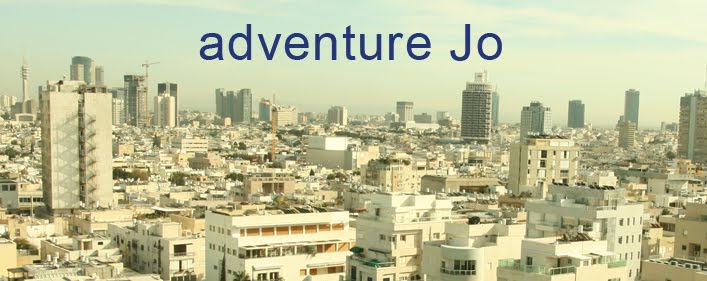On the first day I discovered that most of the people sitting around me had similar stories to me - they had moved to Israel to be with their boyfriends or girlfriends. Seems like Israelis are going round the world and not just coming home with a tan, they are bringing girls and boys back with them! Mind you, it is mostly women in the class, so it appears that Israeli men are doing a better job at this importing business. The other half of the class are new Jewish immigrants to Israel.
The list of nationalities in the class of 40 people is impressive by any standard. I'm the only Australian, but there are people from the US, Argentina, Sweden, Russia, England, Germany, Brazil, Spain, France, Finland, the Netherlands, Norway, Kenya and Colombia (I'm sure I've left some out...).
The teacher is very good, but hasn't spoken any English after the first day. Things move quickly, we cover grammar, masculine and feminine forms of nouns... I'm just hoping it all fits into my head.
I've realised I'm terrible at grammar so that is what I'll be practicing most. Fortunately Amit helps me with my homework - learning the Hebrew script letters at the moment, and filling in the gaps of things I missed in class.
Some of my Hebrew homework - learning how to write the cursive script (looks like a bunch of squiggles hey)
I never expected I'd be learning Hebrew in my life. The language of the bible is a pretty strange thing for a non-religious Australian to learn. But then I never thought I'd live in Israel, or meet the love of my life on a cooking class in Vietnam, or talk about the science of slime to thousands of Australian kids, or write a blog, or talk about chocolate on BBC radio, or walk to university in the snow in Montreal, or ride a camel in Jordan either. Life is full of the unexpected, and that makes it wonderful. Learning Hebrew is another part of this adventure, and it has a great reason behind it - making a life with Amit in Israel. Love is always the best reason for doing unexpected things, in my opinion.
And here is a fantastic song by Feist. It has some great lyrics, like "I feel it all, I feel it all". That's what I'm trying to do right now, feel everything that life makes me feel. Hope it makes you feel happy too.


.JPG)
.JPG)
.JPG)


